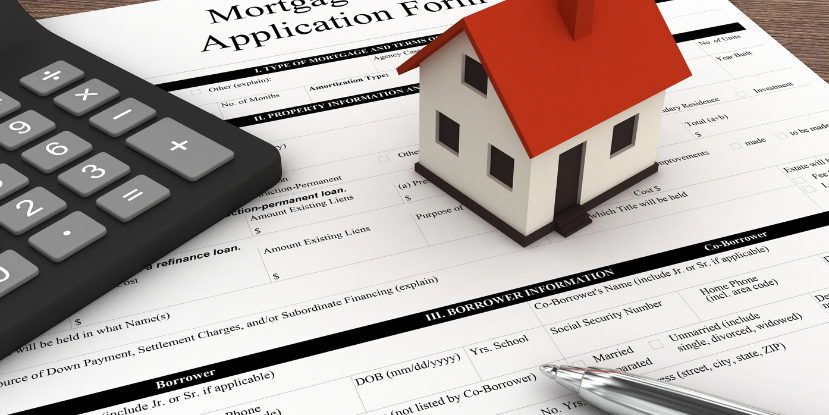Securing a real estate mortgage in Dubai can be an exciting yet complex process. With its vibrant property market and opportunities for investment, Dubai attracts buyers from across the globe. However, obtaining a mortgage requires thorough preparation and an understanding of the required documentation. This article will guide you through the essential documents you need to ensure a seamless mortgage application process, whether you are working with a mortgage broker Dubai or directly applying to financial institutions.

Personal Identification Documents
The first step in the mortgage application process is proving your identity. This is a standard requirement to ensure the authenticity of applicants and to comply with regulations in the UAE. You will need to provide:
- A valid passport (for both residents and non-residents).
- UAE residency visa (if applicable).
- Emirates ID (mandatory for UAE residents).
These documents confirm your legal status and eligibility to purchase property in Dubai. For expatriates, ensuring that your residency visa is valid is crucial.
Proof of Income
One of the most critical aspects of mortgage approval is proving your ability to repay the loan. Whether you are a salaried employee or self-employed, you will need to submit income-related documents. These may include:
- Salary certificate (for salaried employees), issued by your employer.
- Bank statements for the last 3-6 months to demonstrate income flow and financial stability.
- Payslips for the previous 3-6 months (optional but often requested).
- For self-employed individuals: audited financial statements, trade license, and company bank statements for the last year.
Providing clear and accurate proof of income is crucial, as it determines the loan amount you qualify for and influences the interest rate you are offered.
Property Documents
Once you have identified the property you wish to purchase, you will need to provide detailed information about it. This includes:
- A signed Memorandum of Understanding (MoU) between the buyer and the seller.
- Title deed of the property.
- Details of the property developer (if purchasing off-plan).
Having these documents ready will expedite the process, as they are necessary for the lender’s due diligence and valuation process.
Employment Verification Documents
Lenders often require additional employment-related documents to verify your job stability and continuity. These documents may include:
- A letter from your employer confirming your position, salary, and length of service.
- Employment contract (if requested).
For those relying on a brokers mortgage in UAE, they can assist in ensuring these documents are prepared in a format acceptable to lenders.
Liability and Debt Records
Lenders will want a clear understanding of your existing financial commitments. This includes:
- Credit card statements for the last 3-6 months.
- Details of any existing loans or mortgages.
- Debt clearance letters (if applicable).
Your debt-to-income ratio plays a significant role in determining your mortgage eligibility. Maintaining a healthy financial profile and limiting unnecessary debts can significantly improve your chances of approval.
Down Payment Proof
In Dubai, buyers are required to provide a minimum down payment when purchasing a property. The amount typically ranges from 20-25% of the property’s value for residents and 35-40% for non-residents. To demonstrate your financial readiness, you must provide:
- Bank statements showing the availability of funds for the down payment.
- Proof of the transfer of the down payment to the seller or the developer (if applicable).
Additional Documentation for Expats
For expatriates applying for a mortgage in Dubai, lenders may require additional documents, such as:
- A letter of reference from your home country’s bank.
- Tax returns (if applicable).
Providing these documents helps establish your financial credibility and eases the approval process.
Role of a Mortgage Broker
Navigating the mortgage application process can be overwhelming, especially for first-time buyers or those unfamiliar with the local market. Working with a mortgage broker Dubai can simplify this process. Brokers act as intermediaries between you and the lenders, helping you identify the best mortgage products tailored to your needs.
A mortgage broker can also assist in ensuring that your documentation is complete and error-free. Their expertise in dealing with brokers mortgage in UAE ensures that your application is handled efficiently, minimizing the chances of delays or rejections.
Tips for a Smooth Application Process
To make your mortgage application process hassle-free, consider the following tips:
- Organize Your Documents: Ensure all required documents are complete and up-to-date. Missing paperwork can delay the process significantly.
- Work with Professionals: Engage with reputable mortgage brokers to guide you through the process and provide expert advice.
- Maintain a Good Credit Score: Your credit history is a key factor in securing favorable mortgage terms. Pay off outstanding debts and avoid new liabilities during the application process.
- Stay Informed: Keep track of the latest mortgage regulations and property laws in Dubai to avoid surprises.

Conclusion
Securing a real estate mortgage in Dubai involves meticulous planning and preparation. From personal identification and income proof to property details and liability records, having the necessary documents ready is essential for a smooth and successful application. Whether you choose to navigate the process independently or work with a mortgage broker Dubai, ensuring compliance with the documentation requirements will save you time and effort. By staying organized and informed, you can unlock the door to your dream property in Dubai’s thriving real estate market.